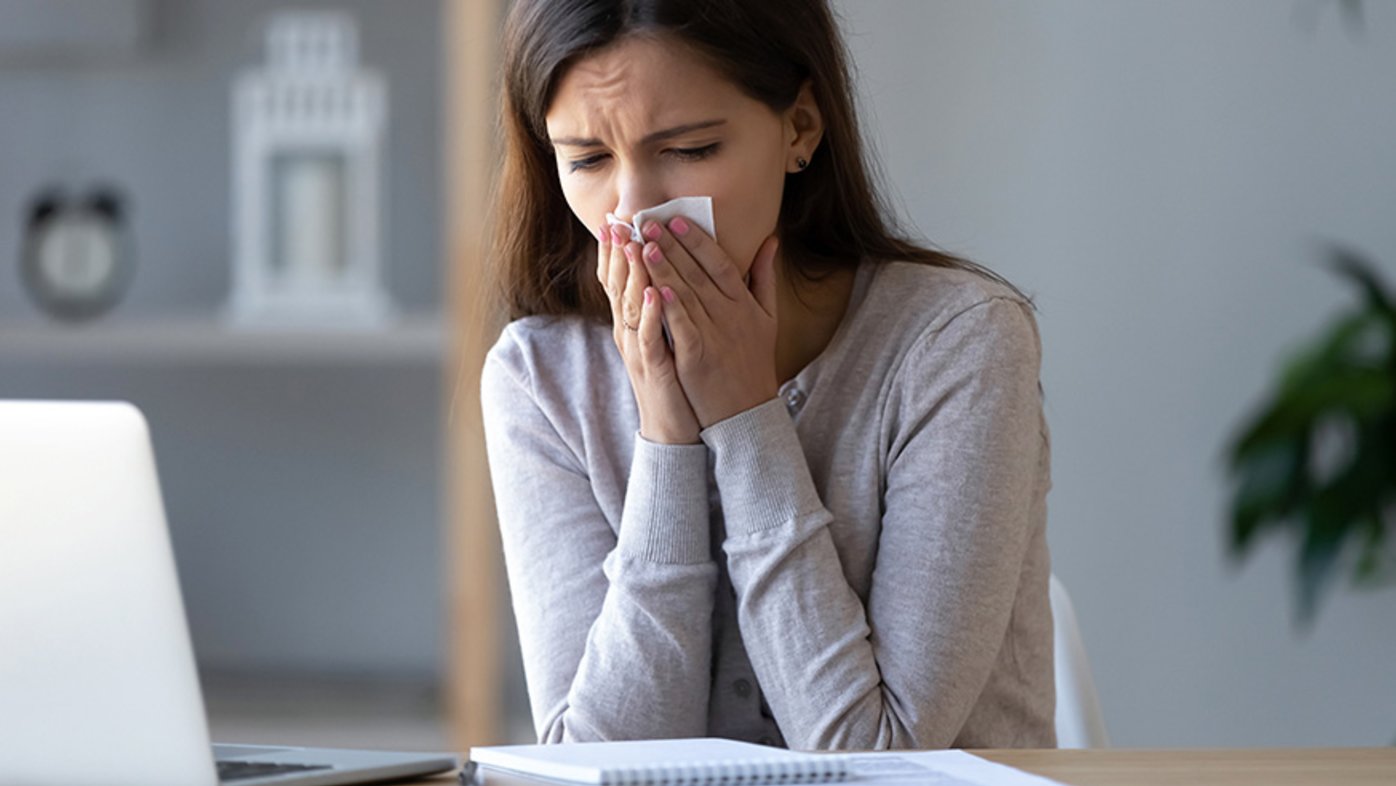
Relief for chronic sinusitis
An ENT doctor answers questions about common treatments for chronic sinusitis.
This time last year, the U.S. was bracing for a “tripledemic” amid rising cases of COVID-19, flu and respiratory syncytial virus (RSV). The surge in RSV cases among infants and toddlers filled hospitals and triggered fear and worry in parents across the country. This season, experts are hopeful the new RSV immunizations will protect those most at risk.
RSV is a common respiratory virus that usually causes cold-like symptoms. While most people recover quickly from RSV, it is the most common cause of bronchiolitis, the inflammation of lung airways, and pneumonia in infants. It can also cause serious illness in older adults.
“Most children will have had RSV by age 2,” says Dr. Lisa Eichberger, a board-certified pediatrician with Sharp Rees-Stealy Medical Group. “For some, it can be life threatening. The severity of illness depends on the child’s age, underlying medical problems and if they are immunocompromised.”
Know the signs of RSV
RSV is spread when someone with the virus coughs or sneezes. The virus can survive on surfaces, including doorknobs and handrails, and is shared through direct physical contact, such as cuddling and kissing. People with RSV are usually contagious for up to eight days, though some can continue spreading the virus for up to one month, even when they are no longer showing signs of illness.
According to the Centers for Disease Control and Prevention (CDC), common symptoms of RSV include:
Runny nose
Decrease in appetite
Coughing
Sneezing
Fever
Wheezing
Parents of infants with RSV may notice fussiness, sleepiness and difficulty breathing. While most will recover on their own in a week or two, infants younger than 6 months might require hospitalization if they are having difficulty breathing or are dehydrated. According to the CDC, RSV leads to approximately 58,000 hospitalizations among children younger than 5 each year in the U.S.
“It’s impossible to predict when RSV will peak this season, but it usually starts in the fall and peaks in the winter,” Dr. Eichberger says. “It’s important to start thinking about ways to protect young children, especially as the holidays approach.”
Stop the spread of RSV
“There are several measures you can take to protect your infant,” Dr. Eichberger says. “Avoid sick individuals as best you can and make sure everyone around your infant washes their hands frequently.”
If you are showing signs of the virus, you can prevent spreading RSV by doing the following:
Cover your coughs and sneezes with a tissue or your upper shirt sleeve — never use your hands.
Thoroughly wash your hands often with soap and water.
Avoid close contact — kissing, shaking hands, and sharing cups and utensils — with others.
Clean contaminated surfaces.
Most importantly, refrain from kissing infants and other high-risk children, such as children with chronic lung or heart conditions and children with weakened immune systems, while you have cold-like symptoms.
Talk to your child’s doctor if they are showing signs of RSV. There is no specific treatment for RSV, though it is important to keep sick children well-hydrated and manage their fever and discomfort. Always consult your child’s care provider before giving them medications, both prescription and over-the-counter.
Learn more about children’s health; get the latest health and wellness news, trends and patient stories from Sharp Health News; and subscribe to our weekly newsletter by clicking the "Sign up" link below.
Our weekly email brings you the latest health tips, recipes and stories.